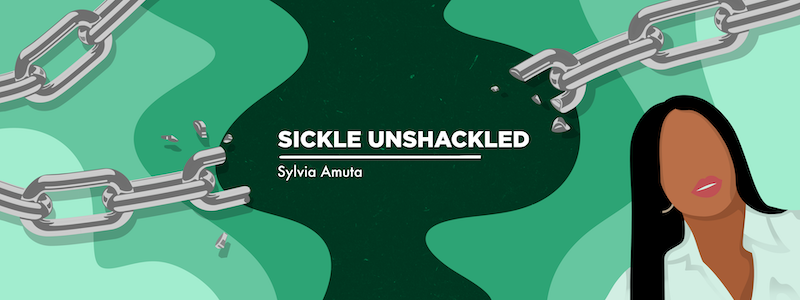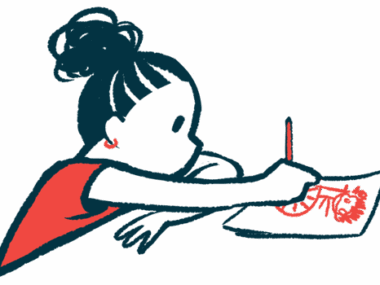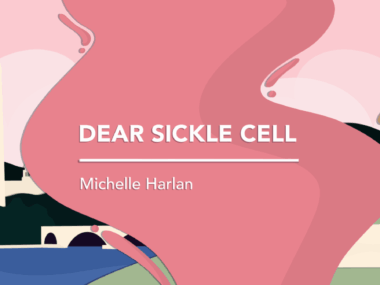My eye-opening introduction to the impact of sickle cell disease
Caregiver Sylvia Amuta recalls her memorable first exposure to the condition
Written by |

As a child, I was never exposed to serious illnesses like sickle cell disease. Now that I think about it, I was really blessed in that respect.
The first time I heard about sickle cell was when I was a teenager and my older sister characterized her best friend as a “sickler.” My curiosity was piqued further when she added that her friend’s brother had the same condition. My sister’s voice dropped as if she were uttering something sinister.
When my aunt gave my sister a sympathetic look, I realized that this was terrible news. For the sake of appearances, I pretended to understand, but inside I was wondering, “What does this mean?” I wanted to know what the strange phrase meant, so I politely asked if I could accompany my sister on one of her visits to her friend.
Who was my sister’s mysterious buddy, about whom she kept using this esoteric term? I was eager for information on every front.
An invisible disease
When we knocked on the door, a gorgeous girl came out, beaming from ear to ear.
As she and my sister had a long, rambling conversation about boys, clothes, and celebrities, I couldn’t help but notice how normal and vibrant this girl seemed. I hadn’t known what to expect, but given the word my sister had used to describe her, I figured I’d discover something strange.
Instead, I encountered a fascinating person with a lot of charm. Her enthusiasm was infectious; it was the type of vibe that could energize a room. I thought for sure my sister had made a mistake. Her description of her friend had to be inaccurate, as I couldn’t fathom how this cheerful young lady could be connected with anything negative.
As my sister and I made our way back home, I turned to her and asked, “Why did you call your buddy a sickler?”
She replied, “Because she is.”
“But she looks fine,” I said, still not convinced. My sister chuckled and then explained that sickle cell is an invisible disease that causes periodic crises and can lead to an early death in many cases.
It all made sense now. I was sure I had the same anxious look on my face that my auntie did when my sister told us about her buddy. I felt terrible for her friend right away. “God forbid,” I said, and my sister echoed me.
Gaining a deeper understanding
Years later, my sister screamed from her bedroom, and we all rushed to see her. When we eventually got her calm, she broke the news that her best friend had died.
That was my first intimate encounter with death. When I last saw this friend, she’d been on her way to meet my sister. When I scanned the group of adults there, I saw nothing to suggest any surprise.
My aunt then said, “Most sicklers have a major crisis when they’re young adults, and most of them barely survive it. If you’re lucky and you do, your odds of making it are better.” My sister’s best friend was one of the unlucky ones.
That was the first time I was truly exposed to the severity and ramifications of this disease. It’s fascinating to compare my experiences then and now. Today, I’m a medical practitioner in Lagos, Nigeria, as well as a caregiver for my young cousin, Ada, who has sickle cell disease. Among the many lessons I took away from that traumatic event in my youth was the importance of treating every day as if it were my last and embracing every opportunity.
In writing this twice-monthly column, it’s my sincere wish that someone, somewhere, may find some solace in my words and be inspired by my experiences. Making a difference in others’ lives is what I care about the most. I’m excited to share more about myself, my journey to becoming a caregiver for a loved one with sickle cell disease, our experiences, and the ways in which we’ve worked together to break free from the shackles of this condition.
Note: Sickle Cell Disease News is strictly a news and information website about the disease. It does not provide medical advice, diagnosis, or treatment. This content is not intended to be a substitute for professional medical advice, diagnosis, or treatment. Always seek the advice of your physician or other qualified health provider with any questions you may have regarding a medical condition. Never disregard professional medical advice or delay in seeking it because of something you have read on this website. The opinions expressed in this column are not those of Sickle Cell Disease News or its parent company, Bionews, and are intended to spark discussion about issues pertaining to sickle cell disease.







Rehan
A very lovely write up. I felt like I was present within the story because I could feel every bit of it.